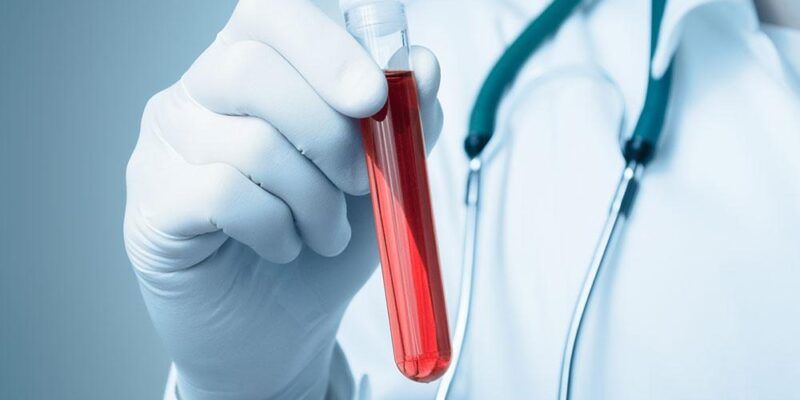Sexually transmitted diseases (STDs) are more common than many people realize, and they can affect anyone who is sexually active. While some STDs present clear symptoms, others can be silent, making it easy to spread them unknowingly.
Early detection through an STD check up is essential for effective treatment and preventing further transmission. In this article, we will discuss the common symptoms of STDs and explain why regular STD check ups are crucial for maintaining sexual health.
Understanding Common STD Symptoms
STDs can manifest in various ways, depending on the type of infection. Some of the most common symptoms include unusual discharge from the genitals, pain during urination, sores or bumps on the genitals, and itching or irritation.
For example, chlamydia and gonorrhea often cause a burning sensation during urination and abnormal discharge, while herpes can lead to painful blisters or sores. However, not all STDs present with noticeable symptoms.
Infections like human papillomavirus (HPV) and HIV may remain asymptomatic for long periods, making it difficult to identify without testing. This is why relying solely on symptoms is not a reliable method for detecting STDs. Regular STD check ups are vital in identifying infections early, even when symptoms are not apparent.
Silent Infections: The Hidden Danger
One of the significant challenges in managing STDs is that many infections can be silent, meaning they do not cause any symptoms. For instance, chlamydia is known as a “silent” infection because most people who have it experience no symptoms at all.
Despite the lack of symptoms, chlamydia can cause serious health complications, such as pelvic inflammatory disease (PID) in women, which can lead to infertility.
Similarly, HIV may not show symptoms for years after infection, but the virus can still be transmitted to others and damage the immune system during this time. The absence of symptoms does not mean the absence of infection, which underscores the importance of routine STD check ups.
The Importance of Regular STD Check Ups
Early detection of STDs through regular STD check ups is crucial for several reasons. Firstly, it allows for timely treatment, which can prevent the infection from progressing and causing more severe health problems.
For example, early treatment of syphilis can prevent complications such as damage to the heart, brain, and other organs. Similarly, starting antiretroviral therapy (ART) early in HIV infection can significantly reduce the risk of developing AIDS and improve the overall quality of life.
Moreover, early detection reduces the risk of transmitting the infection to others. When an STD is diagnosed and treated promptly, the likelihood of spreading it to sexual partners decreases. This is particularly important for infections like HIV, where early treatment can lower the viral load to undetectable levels, making transmission almost impossible.
Protecting Your Health and Your Partner’s Health
Regular STD check ups are not only about protecting your health but also about safeguarding the health of your sexual partners. Many STDs can be transmitted even when symptoms are not present, and untreated infections can have serious consequences for both partners.
For instance, untreated gonorrhea and chlamydia can lead to infertility in both men and women, and untreated syphilis can cause severe neurological and cardiovascular problems.
By getting regular STD check ups, you can ensure that you and your partners are aware of your sexual health status and take appropriate steps to prevent the spread of infections. This is particularly important in maintaining trust and communication in relationships, as it demonstrates a commitment to mutual health and well-being.
How Often Should You Get an STD Check Up?
The frequency of STD check ups depends on several factors, including your sexual activity, the number of partners you have, and whether you or your partners have been diagnosed with an STD in the past.
Generally, it is recommended that sexually active individuals get tested at least once a year. However, if you have multiple partners, engage in unprotected sex, or suspect you may have been exposed to an STD, more frequent testing may be necessary.
For individuals in monogamous relationships, both partners should get tested before stopping condom use. Even if you trust your partner, it’s important to confirm that neither of you has an undiagnosed infection that could be transmitted.
Where to Get an STD Check Up
STD check ups can be done at a variety of healthcare settings, including clinics, hospitals, and specialized sexual health centers. Many clinics offer confidential testing, and some even provide free or low-cost services. If you’re unsure where to go for an STD check up, your primary care physician can provide guidance and refer you to a suitable facility.
It’s important to remember that getting an STD check up is a routine part of maintaining your health, just like getting a regular physical or dental check-up. There’s no shame in getting tested, and it’s a responsible step in protecting both your health and the health of your partners.
Taking Charge of Your Sexual Health
Understanding the common symptoms of STDs and the importance of regular STD check ups is crucial for maintaining sexual health. Since many STDs can be silent or present with mild symptoms, relying solely on symptom recognition is not enough. Regular STD check ups are essential for early detection, timely treatment, and preventing the spread of infections.













Comments